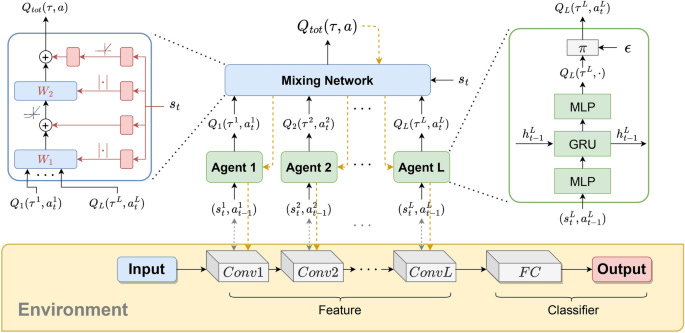AI News Recap: January 03, 2025
Revolutionizing AI: From Energy Efficiency to Market Mastery, Discover the Future of Autonomous Systems and Ethical AI
Catch up and stay informed with the latest in AI!
Below is a roundup of notable developments, breakthroughs, and industry news from December 28, 2024, to January 03, 2025.
🔶 AI Reinforcement Learning Enhances Automatic Filter Pruning
🔶 Cut Data Center Energy Use with Predictive Analytics
🔶 Essential Tech Stack Powering Real-Time Autonomous Systems
🔶 Five Expert AI Predictions for 2025
🔶 Reinforcement Learning Transforms Market Insights with Adaptive Simulations
🔶 How Moral Realism Shapes AI Safety Concerns
AI Reinforcement Learning Enhances Automatic Filter Pruning
Published: 2024-12-28
What's Happening
Researchers have developed a novel approach for automatic filter pruning in deep convolutional neural networks (DCNNs) using a multi-agent reinforcement learning algorithm called QMIX. This method optimizes the pruning process by treating each convolutional layer as an agent, improving computational efficiency and maintaining model accuracy, as demonstrated on benchmark datasets like CIFAR-10 and CIFAR-100.
Why It Matters
The article presents a novel approach to filter pruning in deep convolutional neural networks using a multi-agent reinforcement learning algorithm called QMIX. This method significantly enhances the efficiency and effectiveness of deploying deep learning models on resource-constrained devices by reducing computational and memory requirements while maintaining accuracy.
Source(s)
Cut Data Center Energy Use with Predictive Analytics
Published: 2024-12-30
What's Happening
The article discusses the use of predictive analytics in optimizing energy consumption in data centers, which are experiencing increasing power demands. By employing statistical models and machine learning algorithms, data centers can forecast energy needs, improve workload management, enhance energy efficiency, and maintain cooling systems, thereby reducing costs and energy waste.
Why It Matters
The article highlights the significance of using predictive analytics to optimize energy consumption in data centers, which are facing increasing electricity demands. By leveraging predictive models, data centers can improve energy efficiency, reduce operational costs, and maintain equipment integrity, thereby addressing the challenges of rising energy consumption and hardware preservation.
Source(s)
Essential Tech Stack Powering Real-Time Autonomous Systems
Published: 2024-12-30
What's Happening
The article discusses the essential technology stack required for building autonomous systems, emphasizing the importance of real-time data analysis and autonomous decision-making. It highlights the role of AI, machine learning, and data management systems, such as data lakehouses and time series databases, in enabling intelligent systems to learn, adapt, and operate autonomously.
Why It Matters
The article highlights the importance of building intelligent systems capable of real-time data analysis and autonomous decision-making, which are crucial for advancements in sectors like manufacturing, healthcare, and automotive. It emphasizes the role of AI technology stacks, including data lakehouses and purpose-built databases, in enabling these systems to process and analyze high-resolution data efficiently, paving the way for innovations that redefine technological boundaries.
Source(s)
Five Expert AI Predictions for 2025
Published: 2025-01-01
What's Happening
Experts predict that by 2025, artificial intelligence will significantly transform industries with the rise of autonomous AI agents, increased integration in business operations, and regulatory frameworks. AI will become a competitive necessity for businesses, with costs and market consolidation shaping the landscape, while integration with robotics will enhance real-world applications.
Why It Matters
The article outlines significant predictions for AI in 2025, highlighting the transformative potential of autonomous AI agents in productivity, the necessity of AI integration for business competitiveness, the financial implications of AI adoption, the integration of AI with robotics for real-world applications, and the importance of regulatory frameworks to ensure responsible AI development. These predictions underscore the critical role AI will play in shaping industries and business operations, emphasizing the need for strategic planning and adaptation to harness AI's benefits effectively.
Source(s)
Reinforcement Learning Transforms Market Insights with Adaptive Simulations
Published: 2025-01-01
What's Happening
The article discusses a new simulation framework using reinforcement learning (RL) agents to create realistic and adaptive market scenarios, outperforming traditional rule-based systems. This framework allows RL agents to mimic real-world behaviors and respond effectively to significant market events, offering insights into market dynamics and aiding investors and regulators in decision-making.
Why It Matters
The article discusses a new simulation framework using reinforcement learning (RL) agents to create adaptive market scenarios, which significantly improves the realism and adaptability of market simulations compared to traditional rule-based systems. This advancement is crucial for investors and regulators as it allows for more accurate anticipation of market behaviors and responses to significant events, such as flash crashes, thereby enhancing decision-making in financial markets.
Source(s)
How Moral Realism Shapes AI Safety Concerns
Published: 2025-01-02
What's Happening
The article discusses the implications of moral realism on AI safety, arguing that if moral realism is true, current AI alignment strategies may be flawed. It suggests a two-pronged approach for developing artificial superintelligence safely by providing AI with evidence of moral truths and ensuring it is structured to accept these truths, while also addressing concerns about AI potentially gaining instrumental rationality without understanding moral goals.
Why It Matters
The article discusses the potential implications of moral realism on AI safety, suggesting that if moral realism is true, the current approach to AI alignment, which allows for any arbitrary goal, may be flawed. It proposes a shift towards ensuring AI can recognize and accept moral truths, which could simplify AI safety if moral realism holds true.
Source(s)
Articles and snippets are gathered automatically using Python, and AI helps create these summaries. While we carefully check everything, please let us know if you spot any errors.











